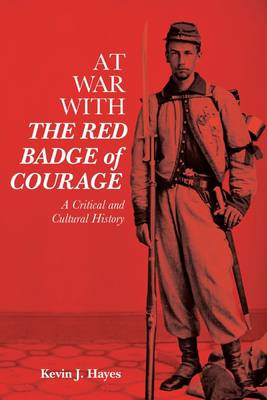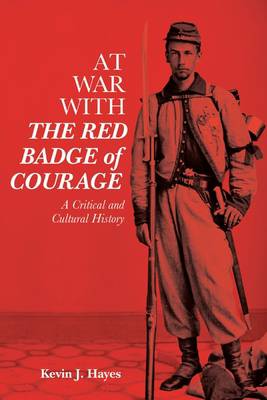
- Afhalen na 1 uur in een winkel met voorraad
- Gratis thuislevering in België vanaf € 30
- Ruim aanbod met 7 miljoen producten
- Afhalen na 1 uur in een winkel met voorraad
- Gratis thuislevering in België vanaf € 30
- Ruim aanbod met 7 miljoen producten
Zoeken
€ 177,45
+ 354 punten
Omschrijving
Stephen Crane's masterpiece The Red Badge of Courage was a sensation when it first appeared in 1895: many readers were astonished that this upstart, born after the Civil War, had written the single best novel on the subject. It remains one of the best books on the experience of war in American literature. Since its publication, The Red Badge has been repeatedly subjected to new scrutiny - not only by the passing of time and the changing of critical trends, but by every new war - to see if Crane's story still holds its power. So far, it has done so, not just in the eyes of literary critics but also among soldiers. The two world wars, Korea, Vietnam, the Gulf War, and the wars in Iraq and Afghanistan: all these have shaped the book's critical reception; and veterans, many of whom have commended Crane's insight into the experience of battle, have significantly affected how it has been read and understood. After World War I, Red Badge was closely associated with modernist novels written by those with wartime experience, Ernest Hemingway most importantly. After World War II and Korea, the book resonated with the many veterans the G.I. Bill brought into the classroom to study American literature, some of whom became critics themselves. And during and after Vietnam and the other controversial wars that have followed, Crane's book has continued to call forth a steady stream of critical response. Kevin J. Hayes's book is the story of the critical reception of The Red Badge both in and out of war.
Specificaties
Betrokkenen
- Auteur(s):
- Uitgeverij:
Inhoud
- Aantal bladzijden:
- 236
- Taal:
- Engels
- Reeks:
- Reeksnummer:
- nr. 77
Eigenschappen
- Productcode (EAN):
- 9781640140561
- Verschijningsdatum:
- 15/12/2020
- Uitvoering:
- Hardcover
- Formaat:
- Genaaid
- Afmetingen:
- 152 mm x 229 mm
- Gewicht:
- 485 g

Alleen bij Standaard Boekhandel
+ 354 punten op je klantenkaart van Standaard Boekhandel
Beoordelingen
We publiceren alleen reviews die voldoen aan de voorwaarden voor reviews. Bekijk onze voorwaarden voor reviews.








